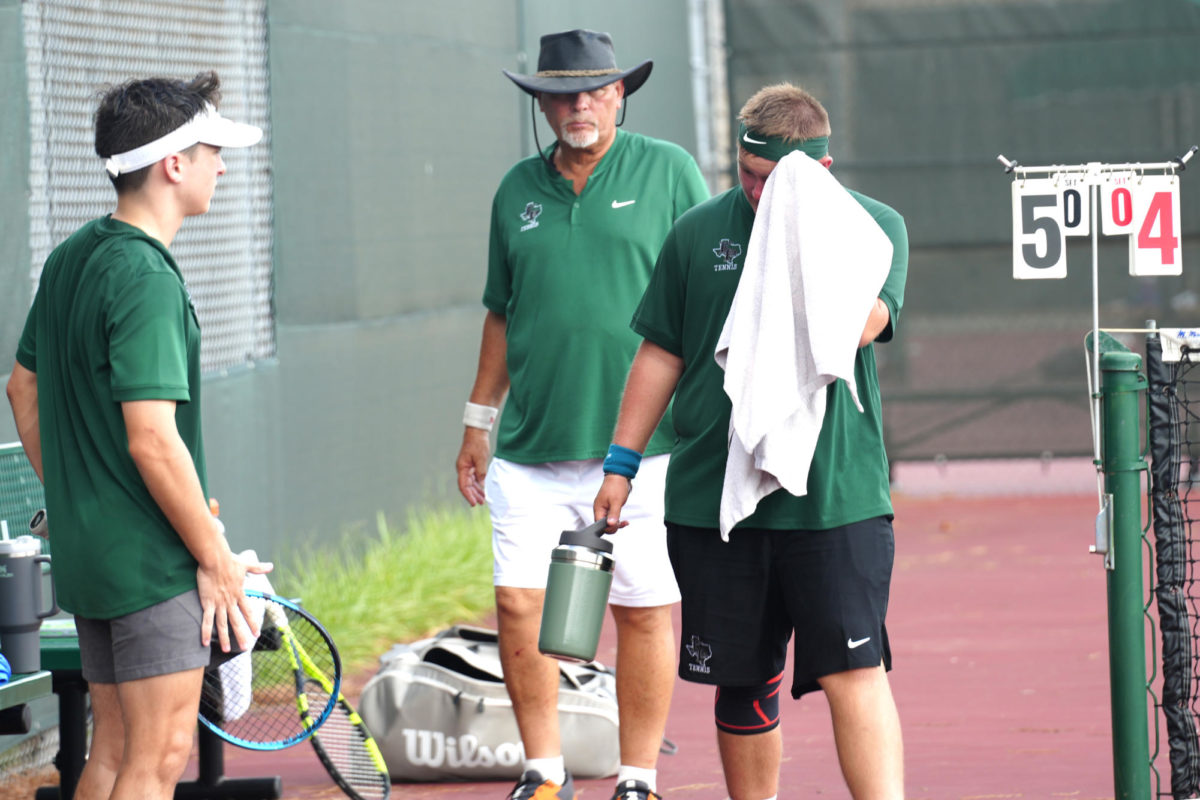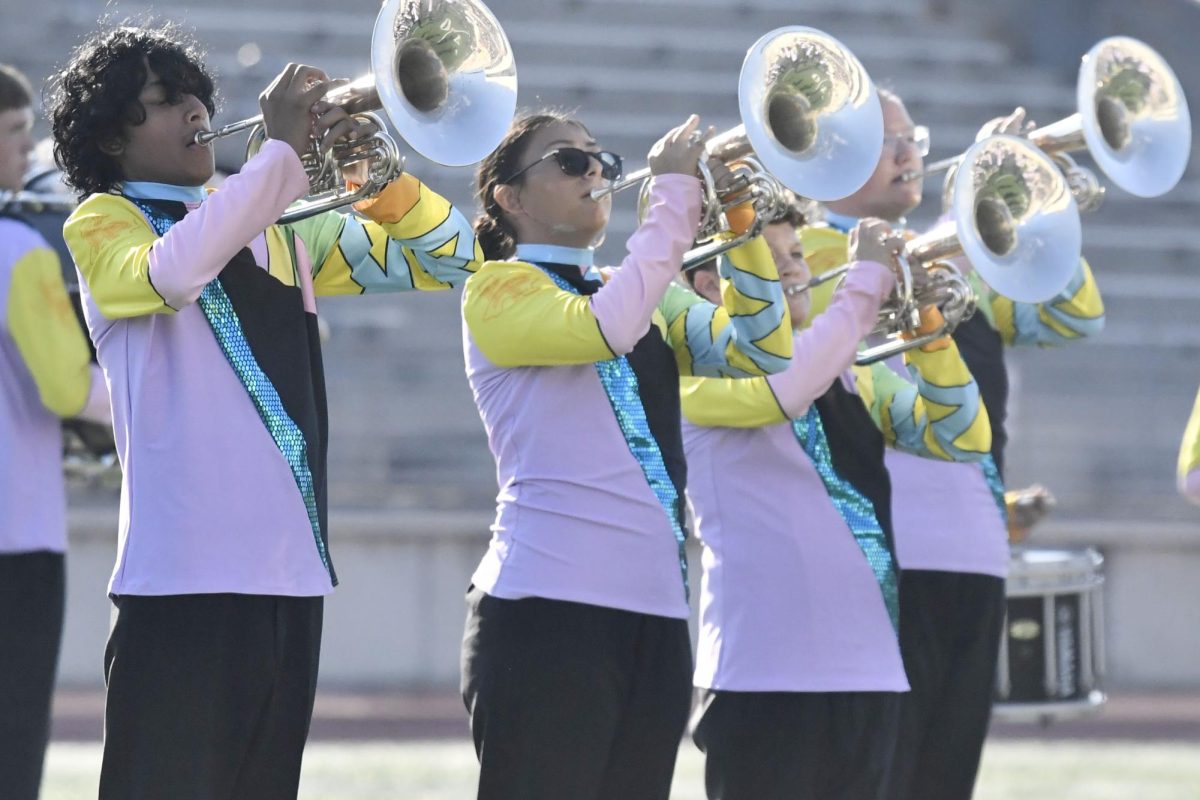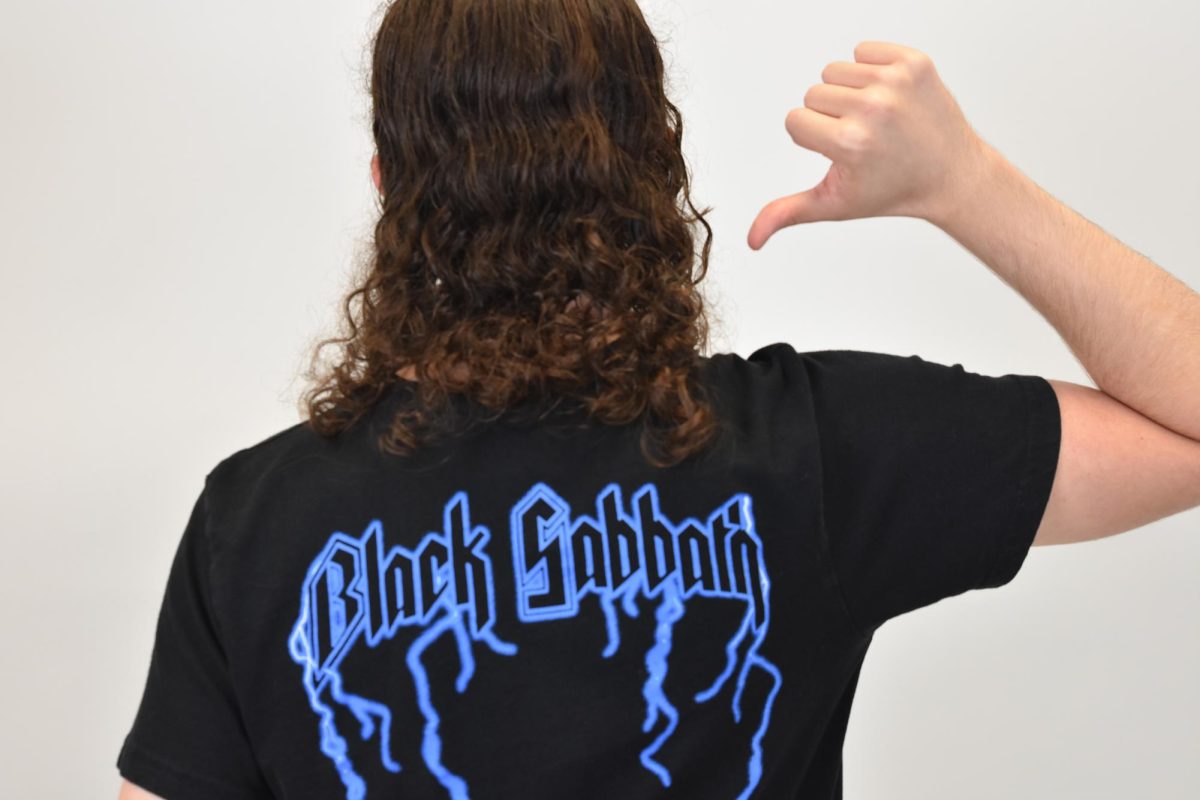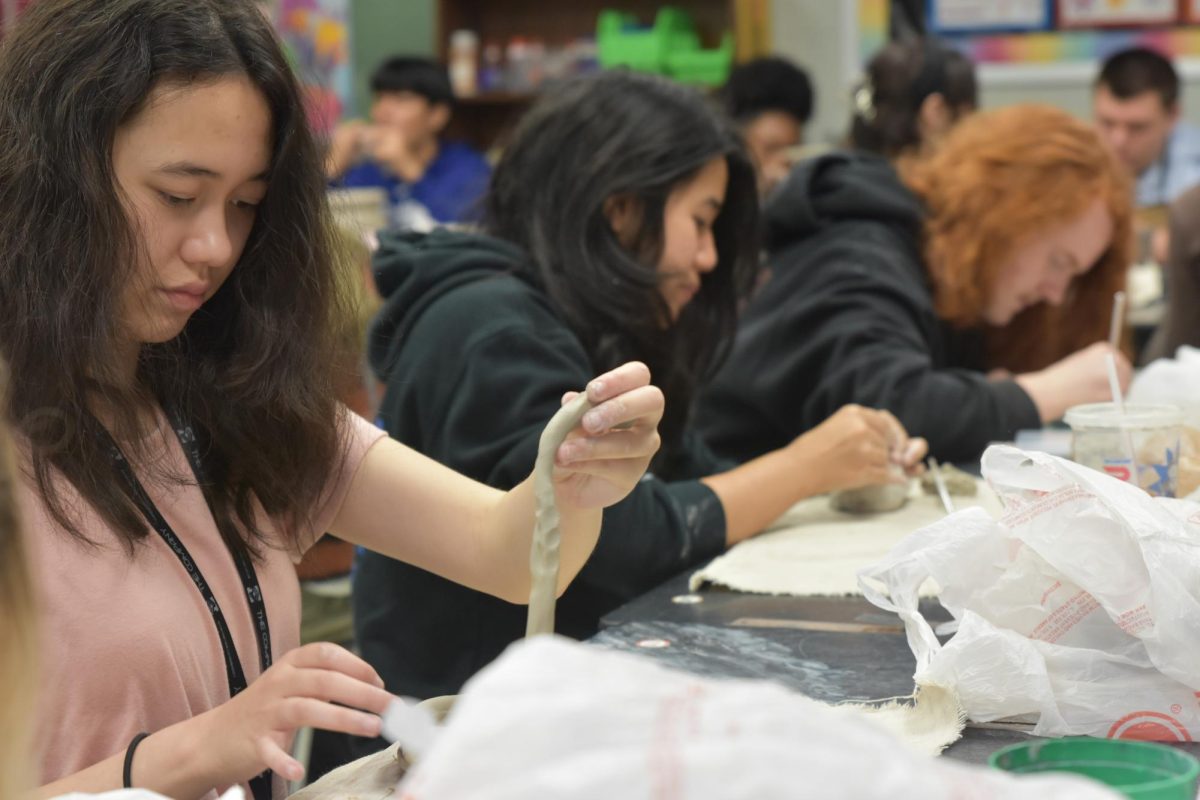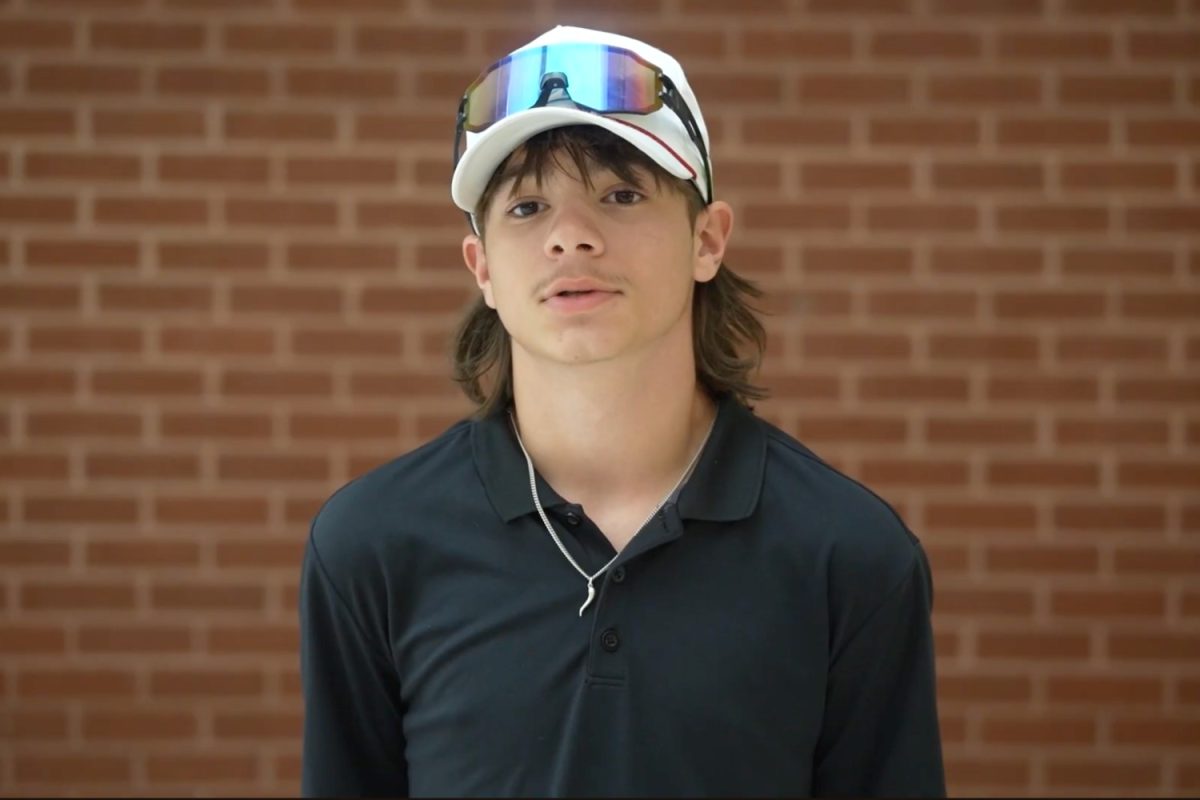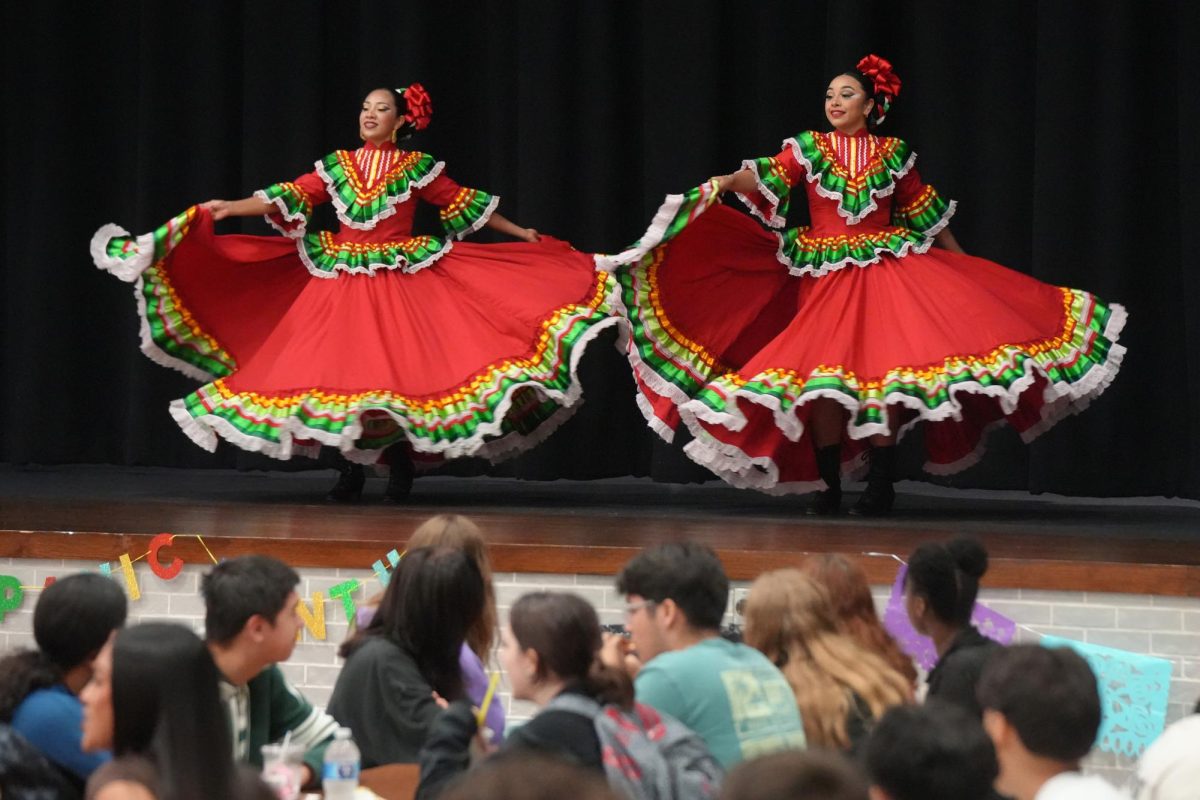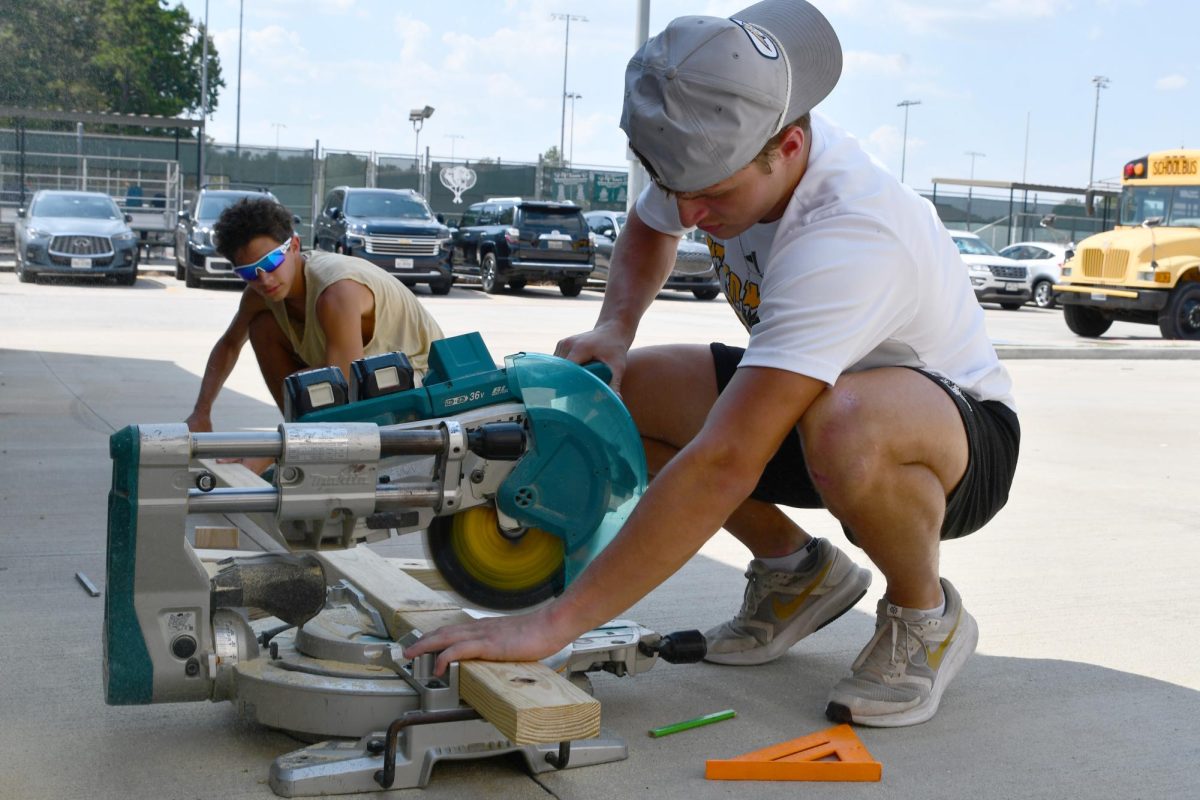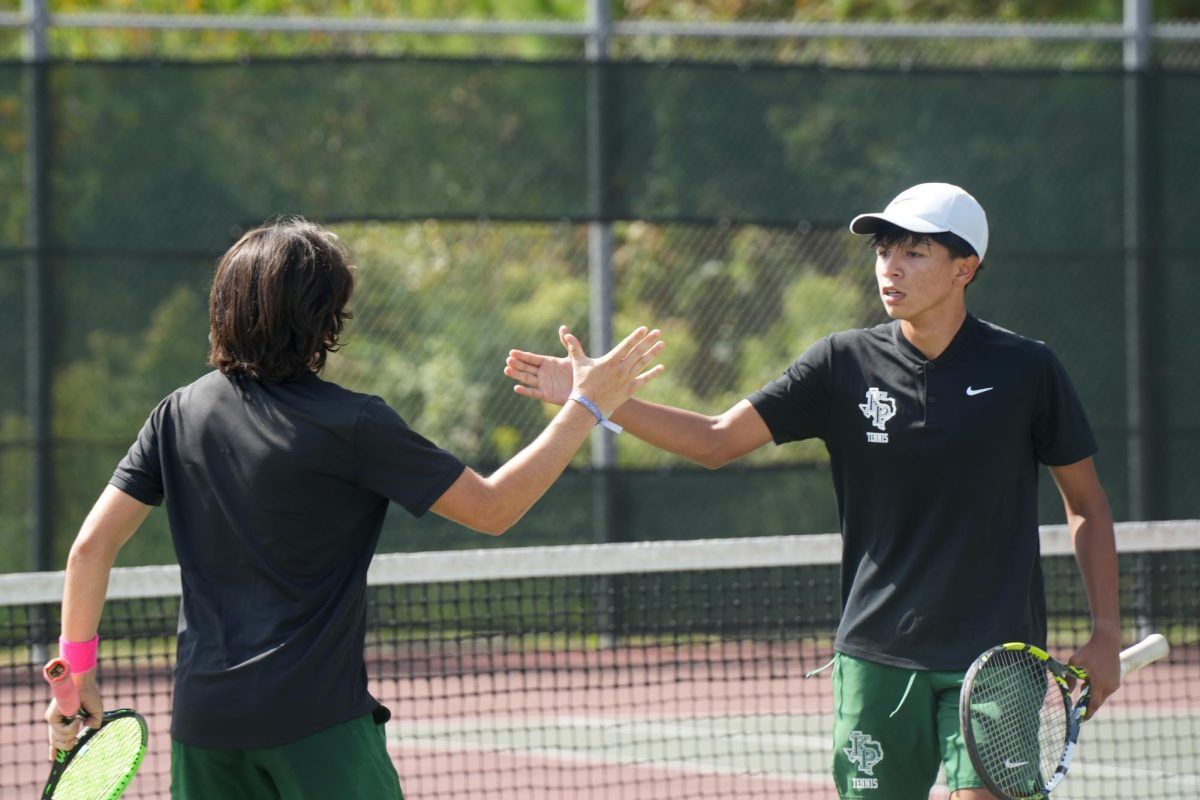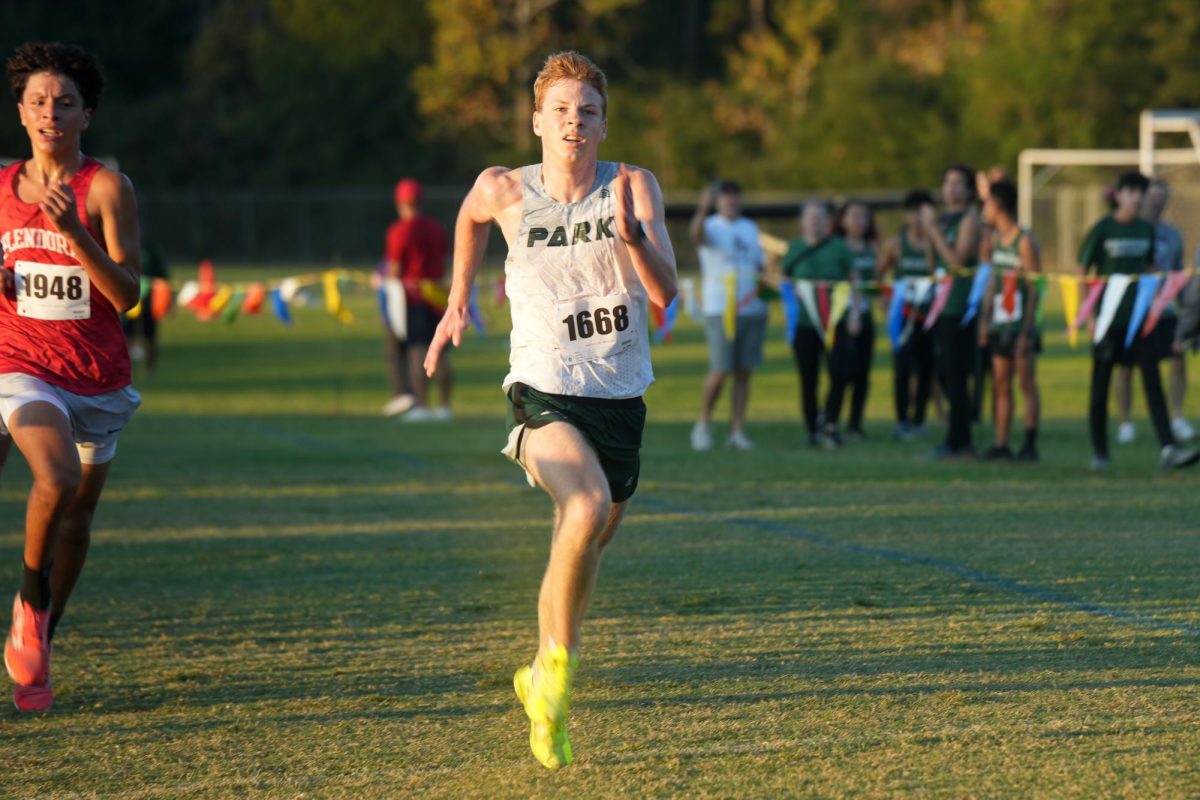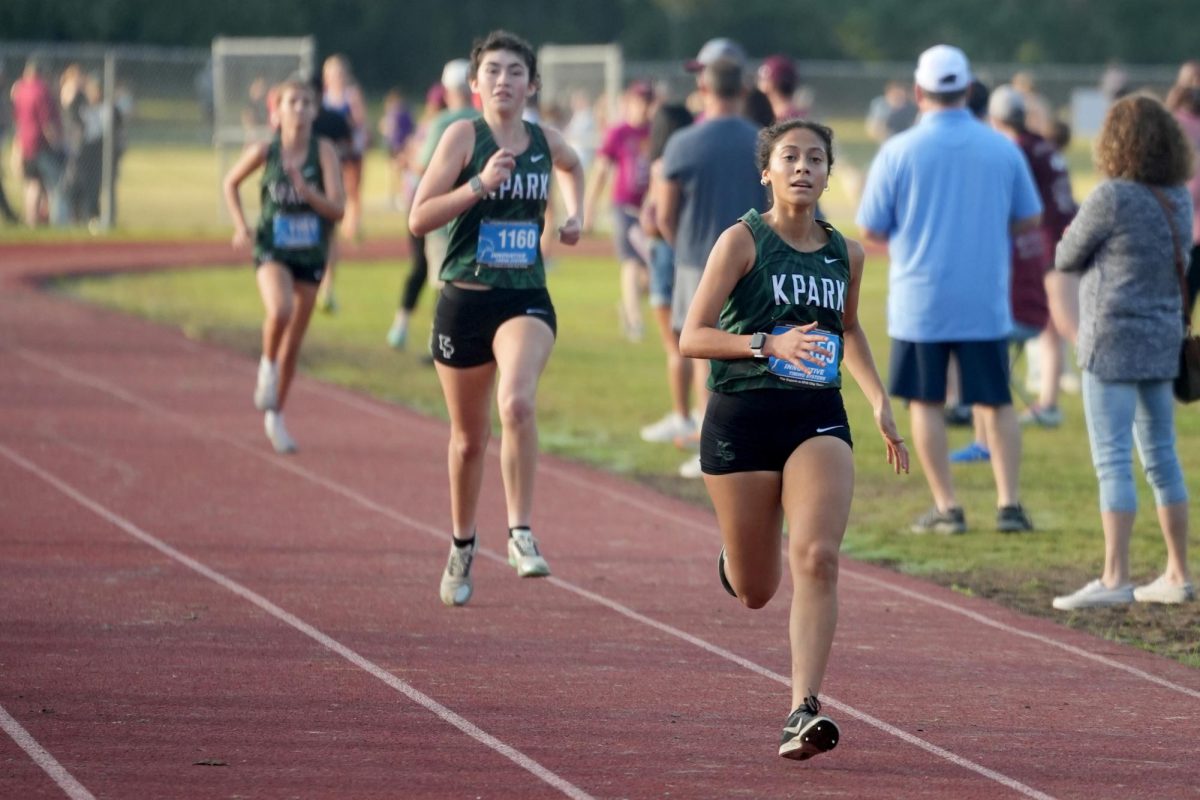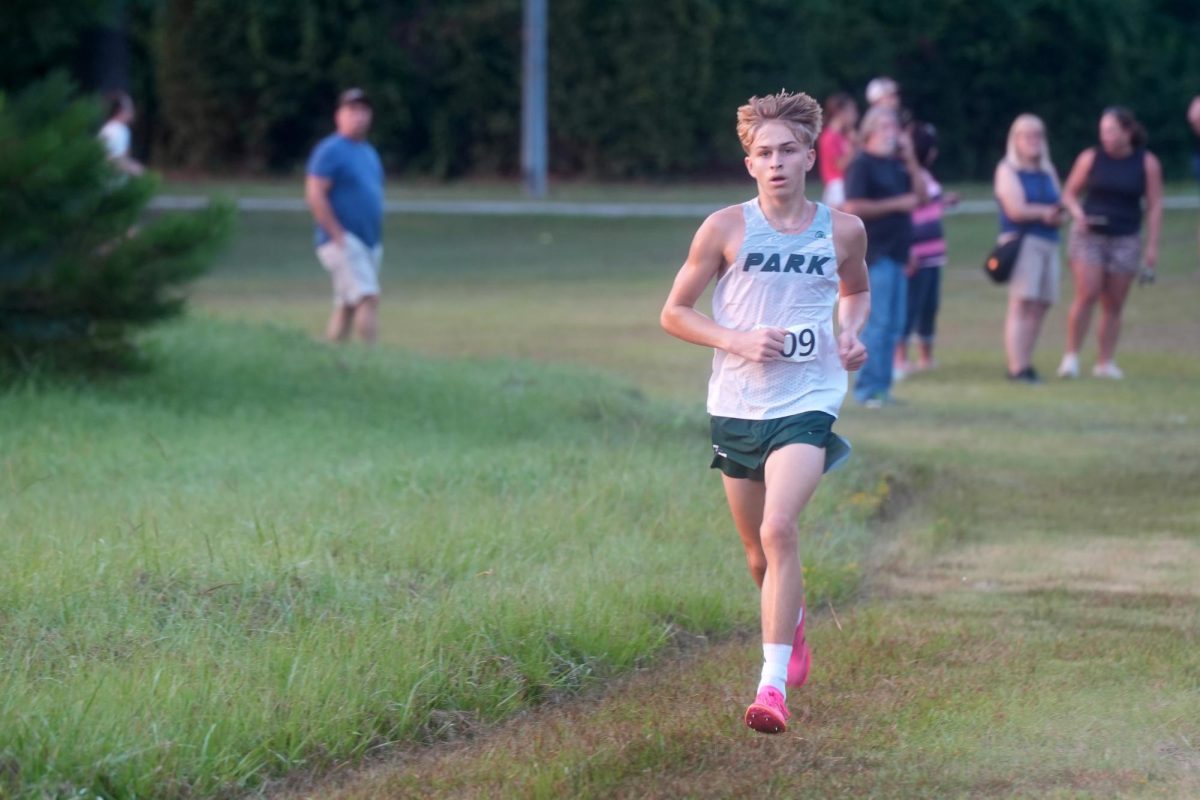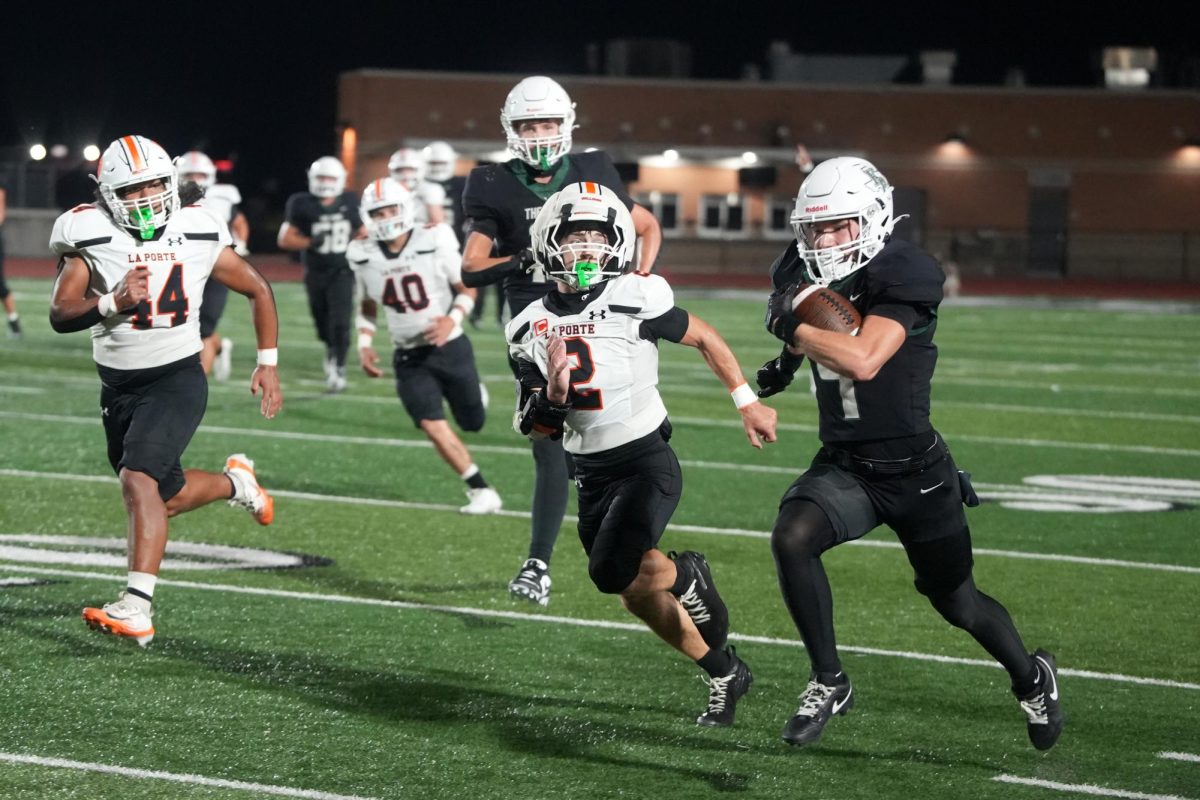The unrelenting heat combined with a lack of rain has resulted in a summer and early school year that is the hottest since 2011. The daily high temperatures topped triple digits in each of the first 21 days of August.
The tennis program has been especially affected by the scorching weather. Coach John Macapaz and his team have been forced to resort to occasional indoor practices, and have even had a pre-season match canceled due to the heat index.
“I’ve been coaching for 13 years and this is the hottest it’s ever been,” Macapaz said. “(I’ve experienced) other elements: rain, wind. But never this type of brutal heat.”
When the heat index reaches 115 degrees, UIL regulations dictate that outdoor sports must move at least part of their practices inside. Macapaz adds that the conditions of the concrete tennis court adds another 15 degrees of heat.
“We expect the kids to acclimate to conditions and everything, but when you talk about these kids having to constantly move around on concrete by themselves or in doubles, there’s not a lot of opportunities for rest,” Macapaz said. “When it comes to that extreme stuff, that’s asking a human body to do something that we’re not built to do.”
Among the athletes working to adapt to the conditions is senior Ava Cockrell. Cockrell practiced with the team throughout the summer, and said that the heat has only increased since then. She, among others, has been forced to center her approach to training around heat management, taking more frequent water breaks and working hard to maintain her conditioning.
“I feel like if you keep practicing outside, you get more used to it,” Cockrell said. “We practice a lot, so it just helps with the heat.”
Although this early season has been the hottest that Macapaz has experienced, he was not caught off guard by the impact of uncontrollable natural obstacles on this season. When creating this season’s match schedule, Macapaz made sure to arrange a surplus of matches, accounting for the likelihood of cancellations. He said that many of these weather-related issues could be remedied by shifting the fall season to later in the year.
“Asking us to play in August with Texas’ extreme heat is now starting to become unreasonable,” Macapaz said. “If we started in October, November and played through December it would make a lot more sense. You’re not asking kids to play in unrealistic conditions and asking them to put their bodies on the line just to play a sport.”
Macapaz also advocates for indoor tennis facilities. He cites that tennis loses approximately 30 percent of their year to weather conditions, and argues that indoor facilities would alleviate worries about missing practices or matches.
Throughout this experience, Macapaz has been most surprised by the extent to which his athletes have been able to adapt to and overcome these obstacles.
“Kids can be flexible when they want to make it work,” Macapaz said. “When you remind them that adversity is a part of life, and learning how to adapt and make the most of the situation rather than complaining, it can really show a person’s character. And I feel like this team has done a really good job of adjusting.”


